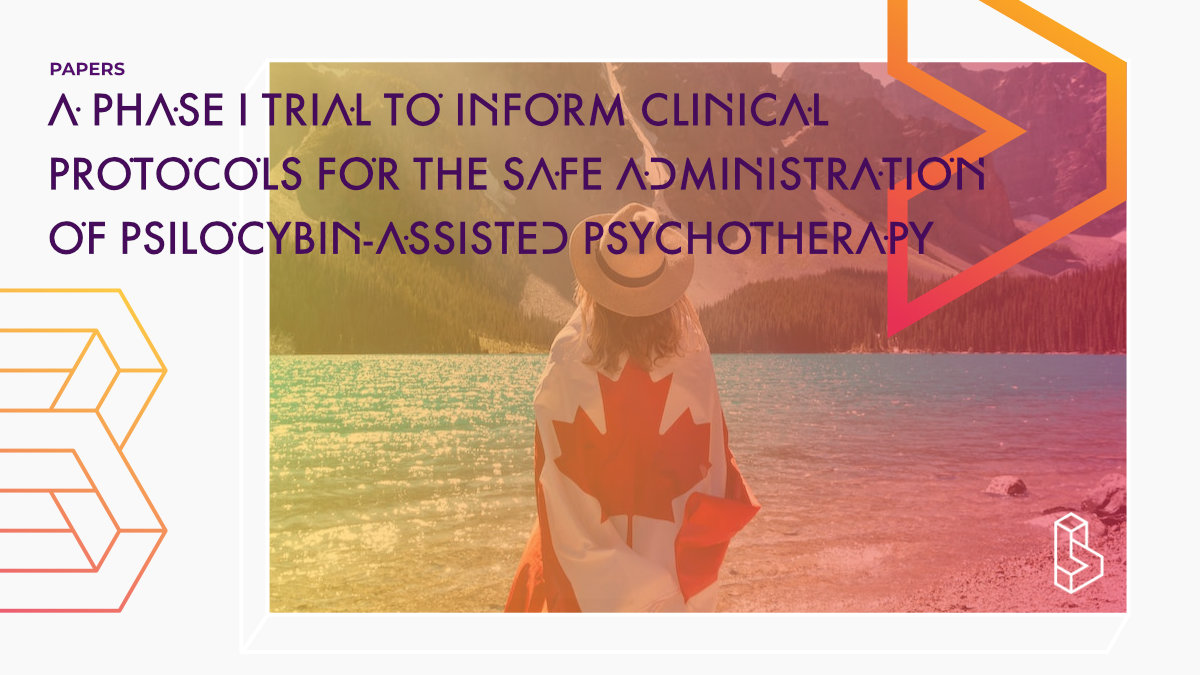This pre-print open-label trial (n=14) organised by ATMA Journey Centers finds psilocybin to be safe, with peak systolic (146) and diastolic (94) blood pressures to be within acceptable ranges. Secondary analyses find a significant decrease in depression (QIDS-SR16) and high mysticism scores (MEQ-30).
Abstract of A Phase I trial to inform clinical protocols for the safe administration of psilocybin-assisted psychotherapy
“This Phase I trial aims to inform the development of safety protocols for psilocybin-assisted therapy. Psychedelics, including psilocybin, are increasingly being recognized as a successful treatment option for many mental health concerns. In order to decrease the risks associated with its clinical use, more data is required regarding its physiological effects in healthy individuals. Safety assessments (heart rate, blood pressure, temperature, and ECG data), as well as adverse event evaluations were the primary outcome measures used to assess the physiological effects of 25 mg of psilocybin extract administered to 14 healthy individuals. We hypothesized that there would be a transient, clinically insignificant rise in both blood pressure and heart rate that would not result in any long-term adverse effects. No unexpected effects were observed, blood pressure and heart rate returned to normal as drug effects waned, and all participants had normal two-month follow-ups. Mean peak systolic and diastolic blood pressures during the psilocybin session were 145.93 (SD = 19.01) and 93.93 (SD = 9.75), respectively. While this represents a significant increase from baseline (p < 0.0001), a healthy cardiovascular system is capable of tolerating such levels for a longer time period than the brief duration of drug effects. Therefore, we suggest implementing focused and limited screening protocols to balance patient safety and accessibility. Secondary outcomes of this trial centered on the subjective effects of psilocybin, assessed via the QIDS-SR16 and the MEQ-30. There was a statistically significant decrease in QIDS-SR16 scores from baseline scores (M = 3.50, SD = 2.35) to eight-week follow-up scores (M = 1.86, SD = 0.86), p = 0.018. Mean MEQ-30 scores, assessed on day two and seven after the psilocybin session, indicate participants had full mystical experiences.”
Authors: Jennifer N. Bennett, Michael D. Blough, Ian Mitchell, Lyle Galloway & Ravinder Bains
Summary of A Phase I trial to inform clinical protocols for the safe administration of psilocybin-assisted psychotherapy
Research on psychedelic drugs for treating mental health disorders has increased exponentially over the last two decades. Psilocybin is gaining prominence in treating generalized anxiety disorder, treatment-resistant depression, and end-of-life anxiety in palliative care patients.
Psilocybin is classified as a Schedule I drug in the United States, but research demonstrates that it has a low abuse potential and can treat multiple mental health disorders.
Find this paper
https://doi.org/10.1101/2023.04.12.23288325
Open Access | Google Scholar | Backup | 🕊
Cite this paper (APA)
Bennett, J. N., Blough, M. D., Mitchell, I., Galloway, L., & Bains, R. (2023). A Phase I trial to inform clinical protocols for the safe administration of psilocybin-assisted psychotherapy. medRxiv, 2023-04.
Study details
Compounds studied
Psilocybin
Topics studied
Safety
Healthy Subjects
Study characteristics
Original
Open-Label
Participants
14
Humans
Institutes
Institutes associated with this publication
ATMA Journey CentersATMA Journey Centers was Canada’s first private therapy company to conduct legal psychedelic-assisted therapy using psilocybin.
Compound Details
The psychedelics given at which dose and how many times
Psilocybin 25 mg | 1x
